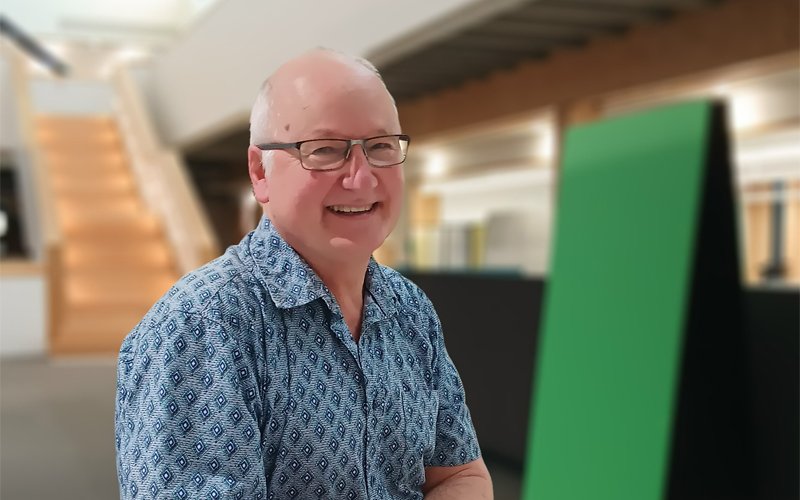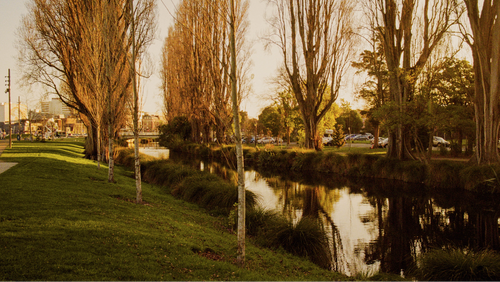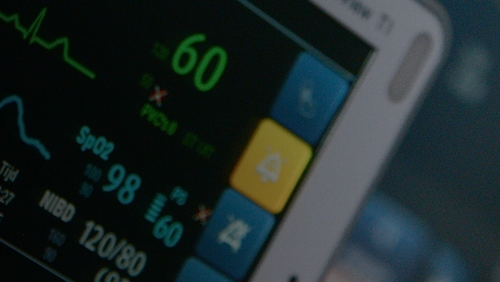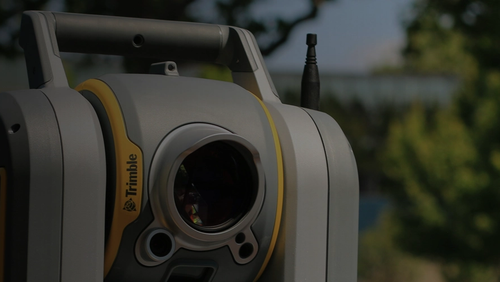1 Oct 2025
Having recently retired from Ara Institute of Canterbury, Steve Tomsett MEngNZ’s career began in 1979 as a cadet draftsman in the mechanical design office at New Zealand Railways’ head office in Wellington. He completed his first engineering qualification part time while working, then his degree, eventually settling in Christchurch for the remainder of his career. This has included roles as a site engineer at Addington Railway Workshops and production engineer for Atlas Appliances.

Steve then spent more than 34 years teaching mechanics, strengths of materials, thermodynamics, machines and vibration at Ara. His achievements there include establishing a YouTube channel with 15 videos, reaching 1.2 million views, “flip class” teaching (more on this later), and extensive involvement with the New Zealand Diploma of Engineering (Mechanical) programme, including as Ara’s programme leader.
What’s on your bedside table?
Amazon Echo Spot Smart alarm clock to play New Zealand bird sounds to go to sleep with, a Bible, a tablet for doing Sudoku puzzles to unwind at night. Smart watch, phone, power cables. Chocolate.
Any books?
Being mildly dyslexic, books and I have never really been good friends. Reading books is more for necessity than for pleasure. Online resources, however, have greatly supported my learning and influenced the way I teach.
Tell us more about these online resources.
Developing web-based resources in the late 1990s proved popular with the students. In the early 2000s I started a YouTube channel with 15 videos, which has now reached 1.2 million views. The work done by the educational organisation Kahn Academy inspired me to change my teaching to a “flip classroom model” whereby students can access information when they need it. Viewing online content before class frees up class time for the important thing: getting them to think like an engineer.
What books or other resources have had the most impact on your career?
I believe a good engineer must have the ability to draw information from a wide range of engineering and science fields, including information on engineering history, and “how stuff works” in general. An example of a book is The Perfectionists: How Precision Engineers Created the Modern World, by Simon Winchester, exploring how precision changed the history of engineering. I use more online resources than books, for example TED talks and technology news sites like Interesting Engineering and smartereveryday.com
What topic are you keeping a close eye on?
AI. In the same way that calculators and the internet changed the way we learnt over the years, so will AI revolutionise the way we learn. But we need to ensure that AI is a support for our knowledge, not the source of it – we need to have more understanding than the AI.
What do you read for fun?
People read for fun? But seriously, recently I’ve been getting into crime novels – Lynda La Plante, Lee Child. Beyond reading, I enjoy animated movies, mountain biking (electric) and renovating.
After decades of teaching, what’s your top piece of advice for engineering students?
Don’t study to get a job – find the thing that excites you and study for that. You will be working for 40 years, so you might as well enjoy it.
What are your plans now that you’re retired?
In 2022, my wife and I did a four-month, 7,500km caravan trip around the North Island. We’re planning on more caravan trips and doing the Great Walks and some of the country’s great bike rides.
SPEED READ
Ebooks/paper copy – About technology it’s online, for novels I like paper.
Borrow/own – Both, but never keep them once read.
Bookmark/turn down page – I can’t bring myself to damage a book.
This article was first published in the September 2025 issue of EG magazine.







